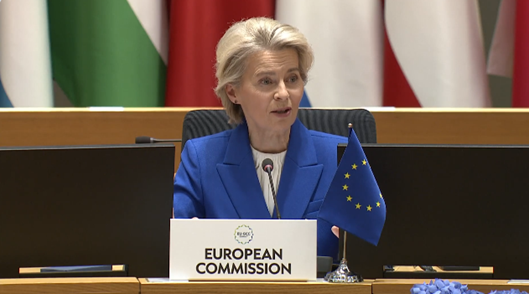
The European Commission has put forward a legislative proposal to gradually and effectively stop the import of Russian gas and oil into the EU by the end of 2027.
The proposed regulation provides a stepwise phase-out of pipeline gas and liquefied natural gas (LNG) originating in or exported directly or indirectly from the Russian Federation. It also presents measures to facilitate the complete stop of Russian oil imports by the end of 2027.
Under the envisaged gradual import ban, Russian gas imports under new contracts will be prohibited as of 1 January 2026.
Imports under existing short-term contracts will be stopped by 17 June 2026, except those for pipeline gas delivered to land-locked countries and linked to long-term contracts which will be allowed until the end of 2027. Imports under long-term contracts will be stopped by the end of 2027.
Long-term contracts for LNG terminal services for customers from Russia or controlled by Russian undertakings will also be prohibited.
The EC detailed that the proposal includes steps for phasing out pipeline gas and liquefied natural gas (LNG), as well as measures to facilitate the complete stop of Russian oil imports by the end of 2027.
The European Commission noted that this is in line with the REPowerEU roadmap, the EU’s strategy to completely remove Russian oil, gas and nuclear energy imports from the EU markets, which the Commission adopted last month.
“Russia has repeatedly attempted to blackmail us by weaponising its energy supplies. We have taken clear steps to turn off the tap and end the era of Russian fossil fuels in Europe for good,” said the president of the European Commission Ursula von der Leyen.
Member States will be required to present diversification plans with precise measures and milestones for the gradual elimination of Russian gas and oil imports.
In case the security of supply of one or more Member States is threatened, the Commission says it can take “necessary emergency measures.”
The proposed regulation will follow the co-decision legislative process, meaning that it will be for the European Parliament and Council to adopt it.


